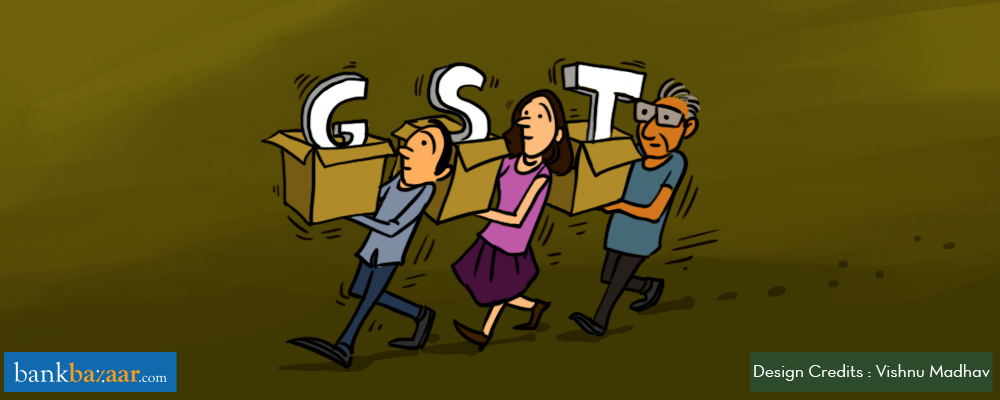
Everyone has been talking about the Goods and Services Tax (GST) for so long and it is finally going to be here. The GST bill has been passed in the Rajya Sabha and it will be ready for roll out soon. GST, one of the biggest tax reforms in India, is expected to have wide-ranging impact on almost all areas of business operations and will benefit the final consumer as well. Read on for an introduction to the newest tax in town -The Goods & Services Tax.
Introducing the GST
The Goods and Services Tax (GST) is a tax levied on the manufacture and sale of goods and services. It is an inclusive tax and will replace a number of other indirect taxes currently applicable in India.
Components of the Tax
The GST will include two components:
- Central GST which will be levied by the Centre.
- State GST which will be levied by the State.
Why another Tax?
The GST seeks to create a unified taxation system to include all indirect taxes under one tax. The GST will reduce the differences that arise because of inter-state variations in taxes.
Which are the taxes that GST will replace?
All taxes including the Central Excise Duty, Service Tax, Special Additional Duty of Customs (SAD) and cesses & surcharges for supply of goods and services, will be replaced by GST. The GST will also absorb other taxes like Value Added Tax (VAT), Central Sales Tax (CST), Purchase Tax, Luxury Tax and Entertainment Tax, among others.
Who decides what is included in the GST?
The GST Council will be formed to decide on issues such as tax rate, inclusions and exemptions under the new tax. The GST Council will also be able to recommend on special provisions to certain states.
The GST Bill allows the Centre to collect an additional tax up to 1% on inter-state supply of goods for two or more years. This additional tax will be given to the states from where the supply originates.
What is exempted under the GST?
The list of goods and services which will be exempted is over 300 as of now but is expected to be trimmed. Certain services that are part of the Consumer Price Index (CPI) basket, are exempt from GST (they are currently exempt from service tax). It is expected that some medicines, items such as milk and bread, books and healthcare will be exempt from GST.
What will the GST rate be?
The rate is yet to be decided but experts believe that it will be between 15%-19%.
What will be the impact of GST?
For some GST may be beneficial because the GST rate might be lower than their current tax rates. Also, GST is expected to reduce logistics and distribution costs, which might ultimately result in lower prices for goods and services. GST will help create an integrated market across the country in case of e-commerce. In this context, GST will eliminate the snowballing effect of taxes in case of goods sold through e-commerce. Phone prices might become uniform across states. The same might be true for automobiles. But note that call and data charges for your mobile connection, might go up if the GST rate exceeds 16%. The same might be true for insurance policies as well as airline tickets.
GST will mainly help control tax evasion by firms and will simplify business operations. This is all expected to help add to India’s Gross Domestic Product (GDP).
Watch this video to understand what GST is and what its impact will be.
What do experts say?
Adhil Shetty, CEO, BankBazaar.com – “The Goods and Services Tax (GST) will do away with the multiple taxes and costs involved, and ensure a transparent, simplified, and unified tax regime for a single borderless market across India. The GST is designed to be electronic with no manual filing of returns. This will ensure higher transparency and accountability, as well as make the process much simpler. We welcome this idea of standardization and digitization, as it will bring down compliance costs, make the processes simpler, and improve the ease of doing business.”
Navin Chandani, Chief Business Development Officer, BankBazaar.com – “In the short term, we will see some implementations challenges and cost rises – with the increase in effective tax rates from 15% to the 18-20%, the cost of personal finance products, such as processing charges for an auto loan or the premium for a car insurance, can go up. On the other hand, with the excise duty, VAT/CST, octroi, entry tax, etc., to be subsumed into GST, the effective rate of tax in the automobile sector will decrease from 25-40% to 18-20%, which has the potential to drive car prices down. So we expect that these fluctuations will level out in the long run and make the access to goods and services for the average person a lot more simplified and streamlined.”
Chanda Kochhar, MD & CEO, ICICI Bank – “The GST Bill is the most important reform in indirect taxation in India ever. It signals the Government’s resolve to put in place a significant structural change which will benefit all segments of the economy. Consumers will see lower prices in the medium term, businesses will able to operate more efficiently and the Government will see a broadening of its tax base along with ease of tax collection.”
There, you go. We’ve covered the important aspects that you need to know about the Goods & Services Tax. Be ready to see it on your bills soon!
how will infect on GST for Gold and Jewelry
Hi Vannurappa,
Under GST, gold will be taxed at 3%, which is slightly higher than the existing rate. The effective rate for gold including customs duty will be 15.67%. This might not have a great impact on the demand for gold and gold jewellery.
Cheers,
Team BankBazaar